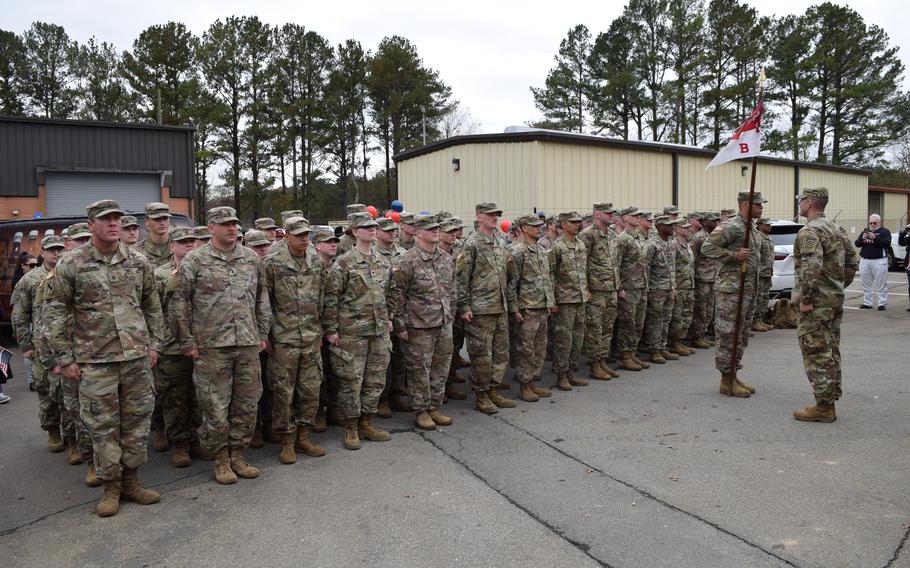
Troops with the Georgia Army National Guard prior to a deployment to Afghanistan in 2018. (William Carraway/Georgia National Guard)
Some 50,000 medically retired veterans would receive increased service-related payments under a bill advanced Wednesday for a House vote by the chamber’s Armed Services Committee.
The Major Richard Star Act would allow veterans medically retired from the military for combat-related injuries before serving 20 years to receive full retirement pay and disability compensation from the Department of Veterans Affairs. The measure was passed by the House Armed Services Committee by unanimous voice vote just before the committee took up the Fiscal Year 2024 National Defense Authorization Act, the annual bill that sets Congress' policy and spending priorities for the Pentagon.
Under current law, veterans who are medically retired for service-related injuries before 20 years and received a less than 50% disability rating from the VA are forced to forfeit a portion of their benefits. The Wounded Warrior Project, a nonprofit advocacy group, estimated those dollar-for-dollar offsets between military retirement pay and VA disability payments could cost a veteran at least “hundreds of dollars” every month.
The Major Richard Star Act would allow all medically retired service members who receive Combat Related Special Compensation — VA benefits for those specifically injured in combat — to collect their full disability benefits and retirement pay.
But lawmakers warned new budget caps passed as part of a debt limit deal enacted this month could keep the bill from being passed. Because of the spending caps imposed by the Fiscal Responsibility Act of 2023, some $8 billion must be removed from spending plans for the Star Act to be approved, said Rep. Adam Smith of Washington, the top Democrat on the House Armed Services Committee.
Rep. Mike Rogers, R-Ala., chairman of the committee, said he would work with the other committee members on finding such a spending offset.
Rep. Gus Bilirakis, R-Fla., said the bill’s advancement was a step closer to rectifying “an injustice that keeps combat disabled veterans from receiving full military benefits.” Bilirakis earlier this year introduced the bill, which he said had 324 co-sponsors.
“The brave men and women who return from serving our country should be able to receive the benefits promised to them,” Bilirakis said. “Military retirement pay and service-connected disability compensation are two completely different benefits. One does not diminish the merits of the other.”
The bill is named for Maj. Richard Star, an Army veteran, father and husband who was medically retired after suffering combat injuries, according to Bilirakis’ office. Star died in 2021 of cancer linked to toxic exposure from burn pits on deployments to Iraq and Afghanistan.
The Wounded Warrior Project and other veterans organizations have championed the bill for more than two years. The bill also has been introduced in the Senate, where it has 66 co-sponsors. It was not clear Wednesday, however, when or if the bill would be considered by the upper chamber.
Wounded Warrior Project “strongly believes that collecting both benefits should never be considered ‘double dipping,’ and no retiree should be subject to the offset,” according to the organization’s fact sheet on the bill. “For this reason, WWP will continue to support legislation to eliminate the offset for all retirees and considers the Major Richard Star Act one step towards achieving that goal.”